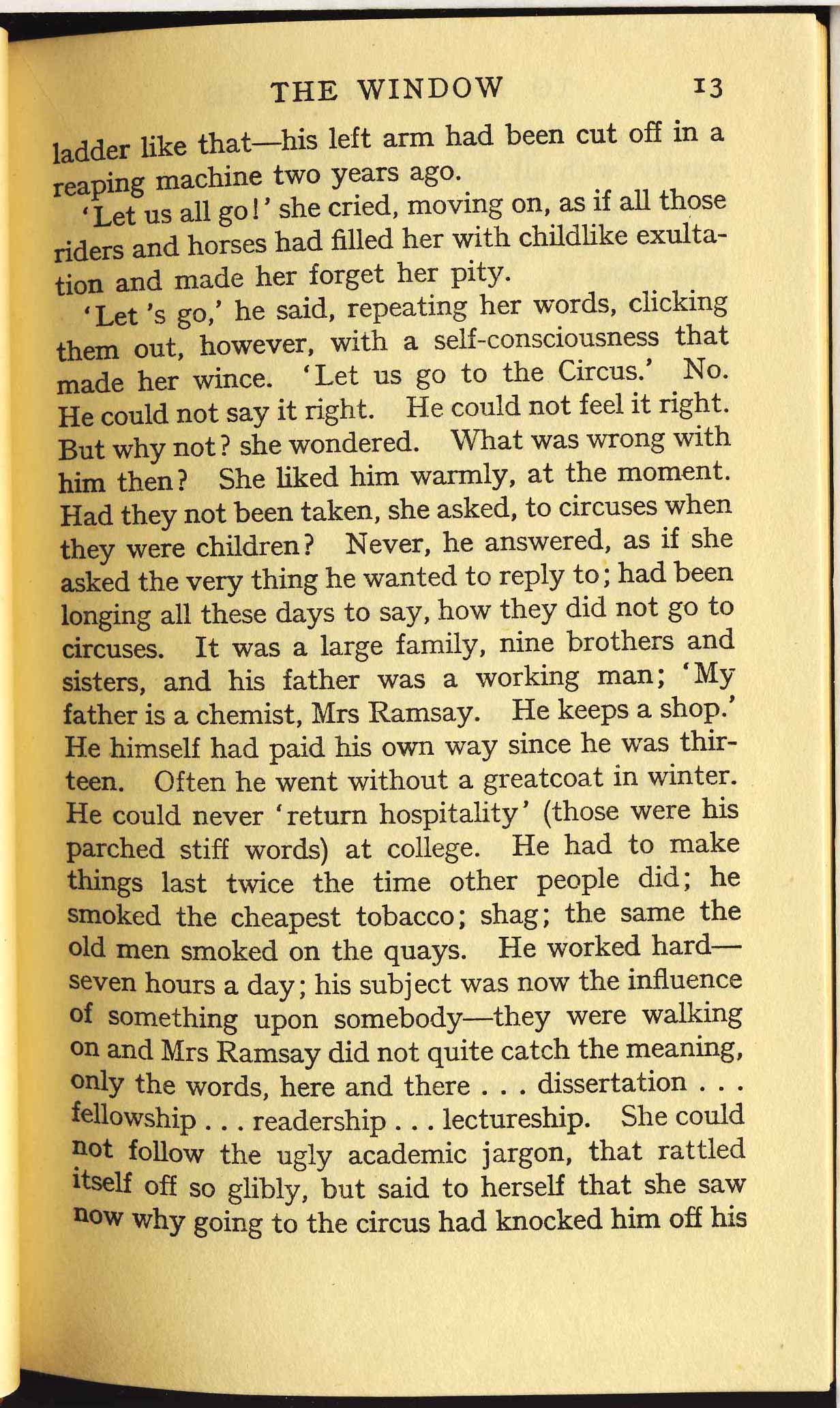Slide to View Image: Opacity 0%

ŌĆśLet us all go!ŌĆÖ she cried, moving on, as if all thoseriders and horses had filled her with childlike exulta-tion and made her forget her pity.
ŌĆśLet ŌĆÖs go,ŌĆÖ he said, repeating her words, clickingthem out, however, with a self-consciousness thatmade her wince. ŌĆśLet us go to the Circus.' No.He could not say it right. He could not feel it right.But why not? she wondered. What was wrong withhim then? She liked him warmly, at the moment.Had they not been taken, she asked, to circuses whenthey were children? Never, he answered, as if sheasked the very thing he wanted to reply to; had beenlonging all these days to say, how they did not go tocircuses. It was a large family, nine brothers andsisters, and his father was a working man; ŌĆśMyfather is a chemist, Mrs Ramsay. He keeps a shop.'He himself had paid his own way since he was thir-teen. Often he went without a greatcoat in winter.He could never ŌĆśreturn hospitalityŌĆÖ (those were hisparched stiff words) at college. He had to makethings last twice the time other people did; hesmoked the cheapest tobacco; shag; the same theold men smoked on the quays. He worked hardŌĆö
seven hours a day; his subject was now the influenceof something upon somebodyŌĆöthey were walkingon and Mrs Ramsay did not quite catch the meaning,only the words, here and there . . . dissertation . . .fellowship . . . readership . . . lectureship. She couldnot follow the ugly academic jargon, that rattleditself off so glibly, but said to herself that she sawnow why going to the circus had knocked him off his








